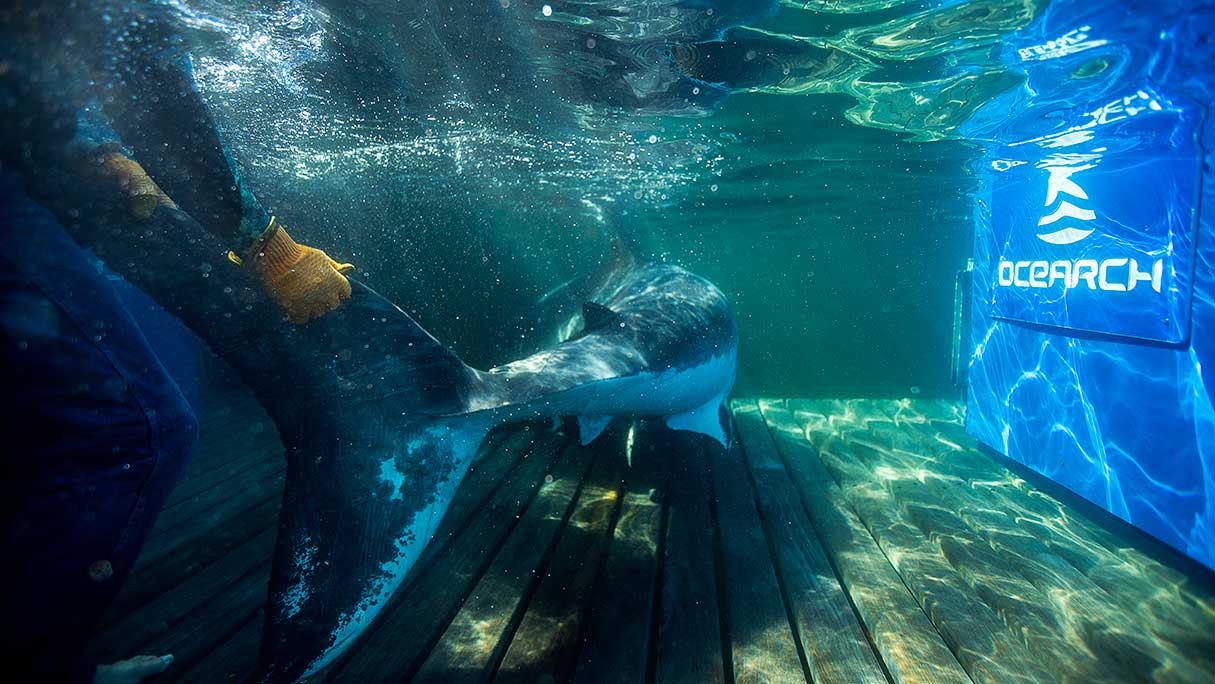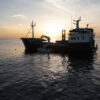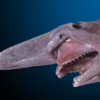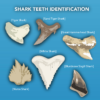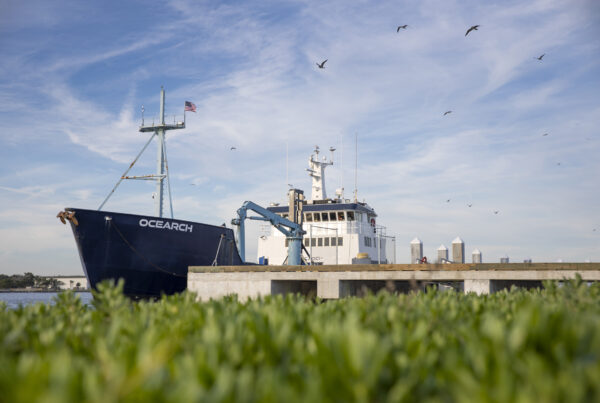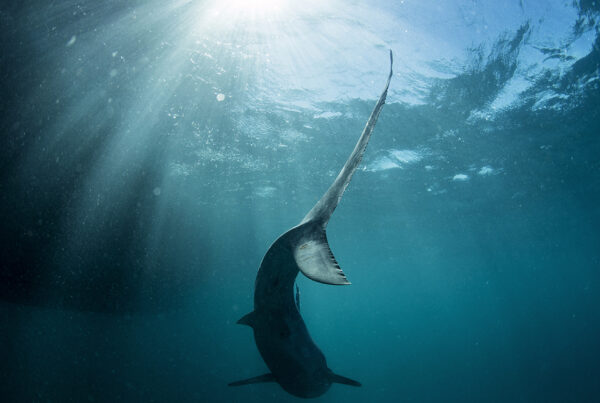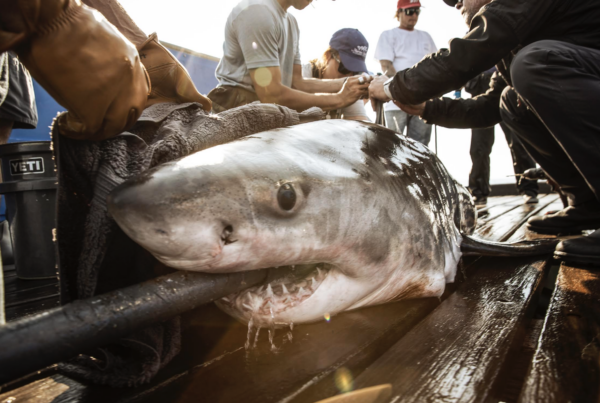Expedition Nova Scotia 2019 comes to a monumental close! Beyond adding 11 new sharks to the sample size, historical observations were also made along the way.
OCEARCH and its team of collaborating scientists have officially concluded a very successful white shark research expedition off the coast of Nova Scotia. Throughout the expedition, the team conducted comprehensive health and reproductive assessments, collected vital scientific samples, and placed satellite tracking SPOT-tags on 11 white sharks.
The expedition started by exploring Cape Breton near Scatarie Island, which OCEARCH was led to by several sharks that were tagged previously on the Southeast coast of the United States. The team tagged three large adult animals and observed several others that were also suspected to be adults. A fourth shark, a young female, was also tagged in the area. She may be the most exciting shark tagged at Scatarie Island because she is OCEARCH’s first observation of such a small, juvenile white shark in Canada.
“Sample size is critical to all of our research and each sample is invaluable. Nova Scotia has proven to be an important location to advance white shark research and I hope we can return.”
“We are just starting to expose what we suspect is the tip of the iceberg to a complete white shark universe up here in Canada,” said OCEARCH Expedition Leader and Founding Chairman Chris Fischer. “This trip showed us there are sharks of multiple ages from both sexes up here. It’s not just big mature or nearly mature animals, there are also juveniles in this system, lending more evidence to the idea that there’s a whole sub-population of Northwest Atlantic white sharks here in Canada.”
OCEARCH finished the expedition at West Ironbound Island near Lunenburg, the same site of OCEARCH’s 2018 expedition. There the team tagged, examined and collected biological samples from seven more sharks. The repeated success in back-to-back years at the same site offers evidence that West Ironbound Island is one of the few areas in the Northwest Atlantic where researchers can find predictable access to white sharks. This is significant because locating sharks is often the most costly component of conducting research.
“Excluding young-of-the-year pups, this is the greatest number of white sharks OCEARCH has tagged on any expedition in the Northwest Atlantic,” said Dr. Harley Newton, Head of Aquatic Health at the Wildlife Conservation Society’s New York Aquarium and Expedition Nova Scotia’s Chief Scientist for the first half of the trip.”Sample size is critical to all of our research and each sample is invaluable. Nova Scotia has proven to be an important location to advance white shark research and I hope we can return.”
OCEARCH’s one-of-a-kind platform provided researchers unprecedented access to the large apex predators that’s unattainable in any other way. This access allowed researchers to conduct hands-on science in order to make observations on Canadian white sharks’ health and behavior. Researchers were able to capture some of the first ever ultrasound images of beating white shark hearts in the wild and were able to estimate their resting heart rate to be around 10 beats per minute. Fecal samples contained fur indicating the sharks are feeding on seals in the area, a finding supported by nutritional analysis of blood samples collected in Nova Scotia in 2018. Semen samples were also collected from two sharks that contained motile sperm, a finding that provides some early clues about the male white shark reproductive cycle in the Northwest Atlantic.
“This data will contribute toward our understanding of the biology and physiology of white sharks in the Northwest Atlantic,” says Dr. Lisa Hoopes, Director of Research, Conservation, and Nutrition at Georgia Aquarium and Expedition Nova Scotia’s Chief Scientist for the second half of the trip. “This trip was a huge leap in helping us obtain the valuable samples needed to assess the importance of Canadian waters to these essential apex predators.”
OCEARCH attributes the successful outcome of the trip to unprecedented collaboration on all levels of the expedition. Samples and data gathered from each of the 11 sharks will support 18 individual research projects, empower 32 researchers and connect 22 institutions. Collaboration between the Department of Fisheries and Oceans Canada (DFO) and OCEARCH throughout all phases of the expedition also helped ensure a positive outcome. DFO officials visited the M/V OCEARCH on numerous days during the operation. OCEARCH is also grateful for the support of DFO scientists who went out of their way to retrieve special pop-off tags that contain a year’s worth of valuable data on two white sharks tagged in 2018 at West Ironbound Island. OCEARCH looks forward to sharing the data with DFO from those retrieved tags.
The 11 sharks tagged on this expedition are a continuation of the work started by OCEARCH in 2012, titled the Northwest Atlantic White Shark Study, to map the life history of white sharks in the Northwest Atlantic and identify their critical habitats.
Given the evidence that there could be a sub-population of white sharks that aggregate in Canada, OCEARCH plans to examine the viability of starting a new research project focused specifically on white sharks in the Canadian Maritimes. OCEARCH hopes to continue working closely with DFO to learn about white sharks in Canada and help collect the data for DFO to put a plan in place to manage them back to abundance.

